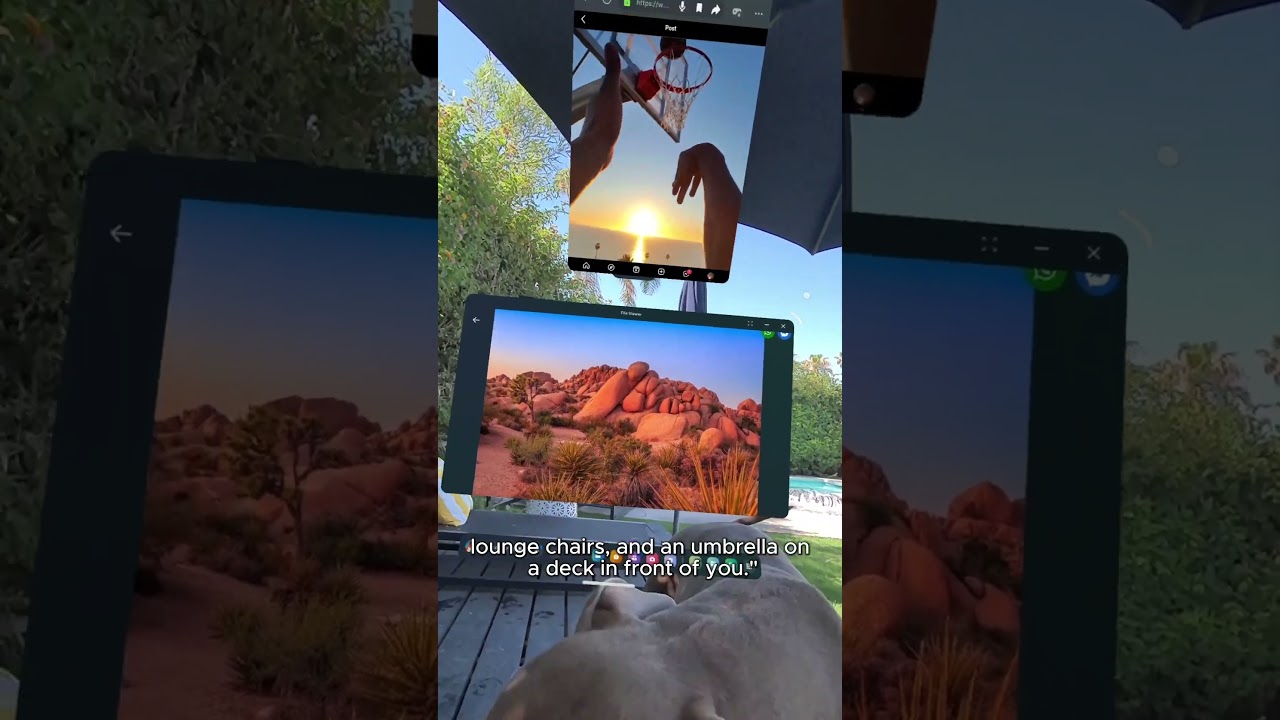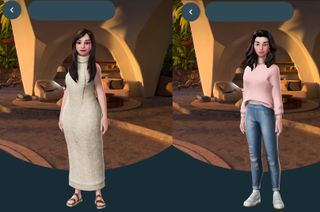Sometimes life is just too busy to keep up with everything. This week’s Meta Quest news was full of announcements, releases, rumors, leaks, and all sorts of other stuff you don’t want to miss, even if you’re technically Already I missed it. But don’t worry, because I’m gathering all the important information you need to know from July 22 to 26, 2024.

To watch
This week, actor and influencer Anthony Hamilton Jr. got the chance to preview Meta’s AI upgrade for the Quest, showcasing a bunch of new features that Ray-Ban Meta smart glasses owners have been using for a few months now.
UploadVR says that this new feature will officially be called “Meta AI with Vision,” and that Quest 3 users should expect to see the feature appear in the Experimental section of the settings menu in August. This should coincide with the v68 firmware update, which is also expected in August.
The new update replaces the existing voice commands on the Quest with vastly improved commands that allow you to use the headset’s cameras (you’ll have to give it permission first, of course) to see the world around you and answer questions. Hamilton Jr used them in a similar way to how many people used the feature on the Ray-Ban Meta smart glasses, but we suspect people will find other new ways to use it with a VR headset in the future.
This is the first time an app has been allowed to use the front-facing cameras to identify the world around you. Previously, all Quest apps were only allowed to access a system-created play space for the environment, which helps ensure privacy but also severely limits mixed reality apps.
Developers have asked Meta to improve this feature and allow access to the camera so that they can create better mixed reality apps. While Meta doesn’t say that this feature will be open to third parties in the future, it’s an important step for a potential future where it will happen.

The Meta Quest 3s has been rumored and leaked for months, but this week we got our first look at the potential new budget Quest headset in person from VR Panda on X. VR Panda is a maker of Meta Quest 3 accessories that is known for previously leaking announcements, including the Quest 3 as well as headsets from other companies like Pico.
This track record gives us confidence that the leak is real and it lines up well with previous leaks of promotional material for the headset, which we expect to be announced at Meta Connect on September 25.
The front of the Quest 3s features six cameras split into two clusters that look a lot like those on an iPhone Pro model (pick a year, they’re all the same). This new headset is believed to feature the same powerful Snapdragon XR2 Gen 2 chipset as the more expensive Quest 3, as well as color mixed reality vision, but will debut at a price of $299.
Avatars could get a major graphical upgrade

Over the years, Meta’s avatar system has undergone significant revisions and updates as the company has experimented with different art styles and ideas. When Meta launched its grand Metaverse project in 2021, it took the first steps toward getting rid of its previously hideous avatars, then gave them legs two years later.
It now appears that a handful of Meta employees are testing out a new avatar design, as seen in the image above and first seen by user Luna on X. The new avatars ditch the more cartoonish body size ratios that the current system employs – referred to as “Boss Baby heads” by some users – and also appear to use more realistic graphics.
Meta has yet to officially announce a potential avatar redesign, but if these do end up being selected as the new design, we could see them announced as early as September 25th at Meta Connect.
Virtual objects look better in the real world

This week, Meta updated its developer tools to support better mixed reality quality, targeting how virtual objects appear in the real world. The new update specifically addresses how Virtual objects appear when a physical object blocks your view of the virtual object.
In one example shown on UploadVR, a real computer chair is placed in front of a virtual guitar, and the Quest does a good job of making the virtual object appear to be in real-world space. The new update improves the clipping of objects around physical objects so that those virtual objects appear to interact with the real object.
Additionally, the new Meta update uses 80% less GPU and 50% less CPU, meaning developers will be able to create more meaningful mixed reality experiences and games. This could potentially give upcoming Meta Quest games like Spatial Ops an even more authentic look and feel.
Valuing shared experiences

One of the most exciting aspects of VR is the ability to virtually spend time with someone and feel like they’re in the same room as you, even if they’re thousands of miles away. X user Luna found new code in a preview build of the August v68 Quest update that indicates Meta is expanding on this concept further, creating a feature that appears to be similar to Apple’s SharePlay on Vision Pro.
For those unaware, SharePlay lets iOS and Vision Pro users make a FaceTime call, then launch an app, movie, or something else and watch it “together” by syncing playback. This feature has proven especially handy during the COVID quarantine on phones, but requires a VR headset to take full advantage.
Right now, there’s little information on how this might look or work, but it’s likely that you’ll be making a call using Meta Quest’s party feature and then launching the app or video of your choice. The party feature is already used to facilitate multiplayer gaming, so it makes sense that Meta would expand it to add features to make social experiences more seamless.
Virtual Reality at the Emmy Awards

The Pirate Queen launched in April of this year and helped highlight the importance of learning history through virtual experiences. The game, developed by Singer Studios and narrated by Lucy Liu (yes, the famous Lucy Liu), puts players in the shoes of Cheng Shih, one of the most infamous pirates of all time.
The adventure was nominated for an Emmy, as reported by Mixed News. The award for “Best Emerging Media Program” also included nominations for the excellent Wallace & Gromit in The Grand Getaway on Quest in addition to three other nominations.
As virtual reality becomes more prevalent in society, we’re seeing more and more awards programs include VR content in addition to VR games. There’s a special kind of empathy that comes from experiencing something in first-person through the eyes of another person, and it’s great to see The Pirate Queen, in particular, receive this nomination.